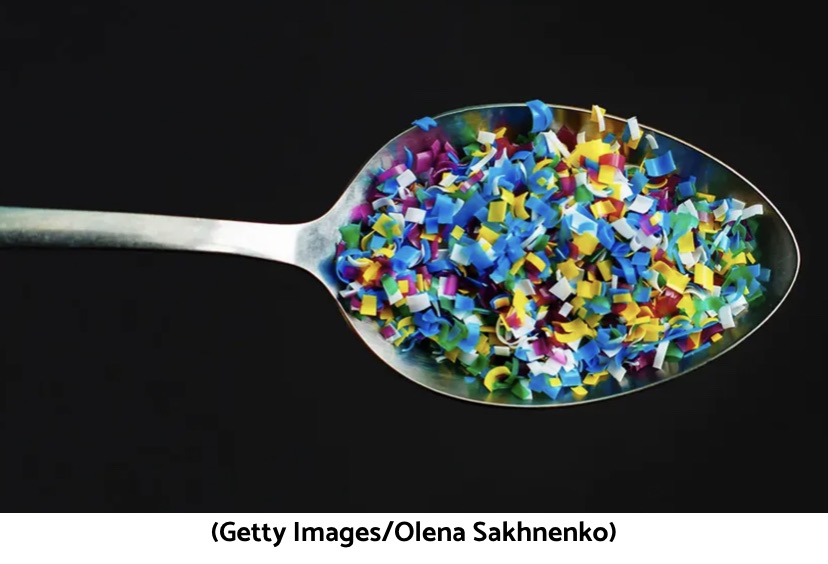
By Sereniti James

This is why we should be cautious of drinking bottled water instead of drinking boiled and cooled water from the tap!
This is why we must be wary of how we dispose of plastic. They need to be gotten rid of by washing the packaging out and packing it in plastic, first. Then sending them straight to the recycle bin. This, then to be sent directly to the recycling plant so that the plastic that is recreated will take the place of no more plastic being produced in its’ place!
This also ensures no plastic is found occupying space in our daily environment as indisposed of garbage 🗑, that we sometimes find littering our streets and other areas inhabited by humans.
We need to accelerate certain studies and experiments being done to increase our work related to creating viable and real substitute materials for plastics.
Conventional plastics are produced from petroleum or fossil fuels and is a product of the oil and gas industry. It leaves a huge carbon foot print on the planet. It adds to the carbon emissions around the globe.
No animals are guilty of these crimes against the environment! This is entirely a human transgression that needs to be stopped immediately.
“According to the United Nations, the world has produced 8.3 billion tonnes of plastic since the 1950s. Of this, only 9 per cent of plastic waste was recycled, while another 12 per cent was incinerated. The rest — around 80 per cent — has accumulated in landfills, dumps or the natural environment. Burning plastics is not a safe way to get rid of it as it leads to the production of environmentally harmful toxins that can increase the risk of heart diseases, aggravate respiratory ailments, damage organs such as kidney and liver and even affect the reproductive and development system in young people.
(Wonder why cancer has been left out of this list?).
What, then, is the way out? …the time has come to seriously look at alternatives. Even now, despite increasing awareness, the total production of plastics is about 350 million tonnes in a year in the world, which is more or less equal to the weight of the entire human population. According to PlastIndia Foundation, an industry conglomeration of associations and institutions that deal in plastic, the use of plastics in India in 2019-20 is expected to be around 20 million tonnes and the market is growing at a rate of 9 per cent per annum.
Plastic, it must be said, is one of the most versatile materials ever known to humankind. It is there in almost every item that people use in their daily lives — from cell phones and television sets to cars and computers, from toys to shampoo bottles…
On an average, we use a plastic carry bag for 12 minutes before it is disposed of, but it can take nearly 500 years to break down in the environment. While it is still there, it chokes to death not just animals on land, but also puts the more vulnerable marine organisms at peril.
While a foamed plastic takes 50 years to degrade, 200 years would be gone by before plastic straws and nappies disintegrate. Plastic bottles, on the other hand, can take 450 years and a fishing line almost 600 years!
That is why the IIT Kanpur-incubated InvoViron’s efforts are important. The feedstock that Gupta and Jamal have zeroed in on is not fossil fuel, but a waste material that is abundantly available. Besides, the kind of plastic that they are making will break down in the soil. “The plastic that we are making can start degrading within a week,” says Gupta.“ —
thehindubusinessline.com
Let’s hope these new products for substitutes to fossil fuel plastics, appear on the market soon.

“Scientists have discovered microplastics in human
blood for the first time, warning that the ubiquitous particles could also be making their way into organs.
The tiny pieces of mostly invisible plastic have already been found almost everywhere else on Earth, from the deepest oceans to the highest mountains as well as in the air, soil and food chain.”
“Where is it going in your body? Can it be eliminated? Excreted? Or is it retained in certain organs, accumulating maybe, or is it even able to pass the blood-brain barrier?” –




